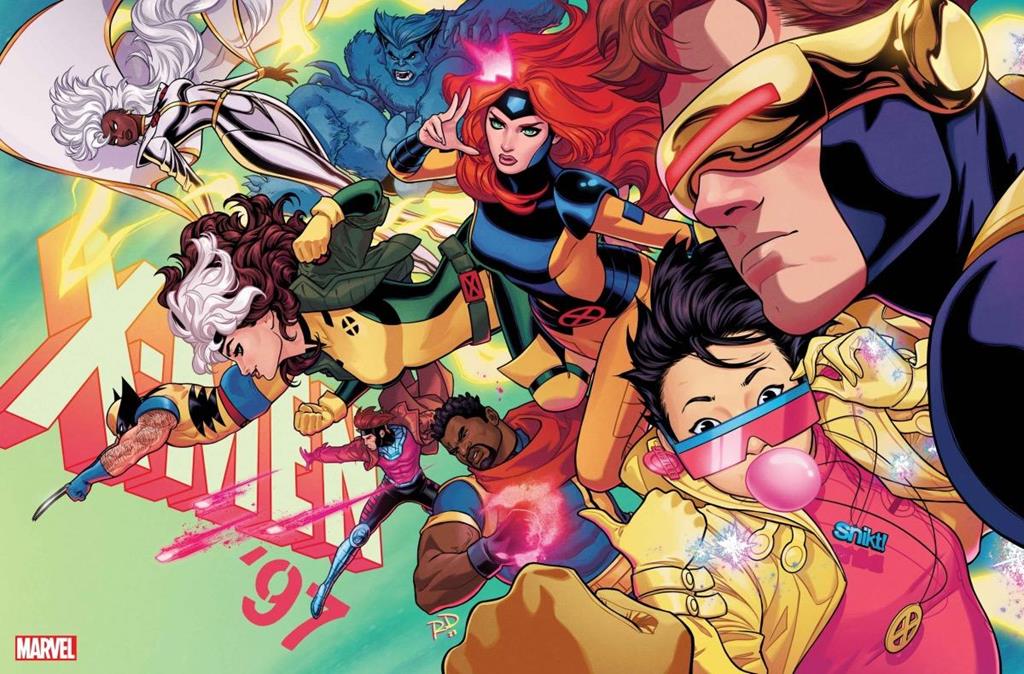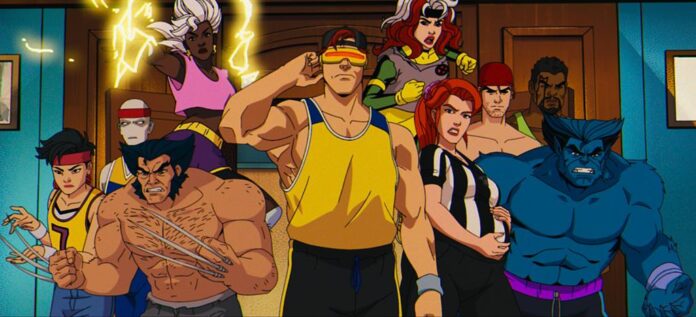Gen Zers — people born after 1996 — likely won’t ever have experienced the ritual of waking up early on a weekend while the rest of the house sleeps, claiming the sole TV, pouring a bowl of sugary cereal, and stretching across the sofa to watch cartoons that couldn’t be accessed any other time or place. For many, the backbone of the weekend cartoon line-up was X-Men: The Animated Series, which ran from 1992 to 1997. The show introduced a generation of young people to the world of Marvel Comics at a time when DC was decidedly dominant. Before there was the Marvel Cinematic Universe, there was X-Men.
The cartoon’s popularity seeded the X-Men (2000) film of the same name, introducing Hugh Jackman’s ubiquitous portrayal of the Canadian curmudgeon, Wolverine, and Patrick Stewart’s Professor Charles Xavier. Despite some cinematic high-points, the inconsistent quality of the numerous X-Men films has meant that for many, the OG has never been matched. Outside of the comics, The Animated Series has been the gold-standard representation of the heroic mutants.
As such, when X-Men ’97 was announced on Nov. 12, 2021, young Gen Xers and elder Millennials let out a cautious collective gasp. After a production period veiled in secrecy, the show that ultimately materialized this March is a perfect analogue for X-Men’s ’90s audience: the same DNA, but a matured, wiser, self-actualized manifestation.
’97 knits past and present, masterfully hiding the stitches. Despite the passage of nearly three decades, ’97 picks up in the immediate aftermath of its predecessor, and feels like a seamless continuation. Even the iconic intro and theme song have been faithfully revived, and several of the voice actors have returned to reprise their roles. Executive Producer Brad Winderbaum said of the show, “So much of the conversation was about not just paying homage to the original style, but emulating people’s memories of the original style.” It worked. There’s a real feeling of stewardship and care that I’m sure is difficult to appreciate for the uninitiated.
All this familiarity provides a pretty stark contrast to just how far film and television have come since the last century. The heavy synths and hand-drawn animations feel straight out of the 90s, but audiences have come to expect much higher production values. Computer-aided advancements in digital art and sound design are regularly (and rightfully) recognized for revolutionizing animated productions, which are no longer the domain of children and adolescents. If ‘97 had simply rebooted the original with a contemporary look, the show wouldn’t have worked, but by deftly modernizing specific elements, the showrunners enhanced the final product without compromising its soul.
Digital animation allows for characters to more freely inhabit their environments, making the battles bigger, and electrifying the action into exciting and dynamic conflicts. Characters like Cyclops who were given short shrift in the original come into their element in ‘97, much to the delight of comic book devotees.

There’s also more attention paid to the team dynamic. Heroes consciously coordinate, combining their gifts to dramatic effect and becoming greater than the sum of their parts. However, if blockbuster superhero movies have taught us anything, it’s that big action set pieces don’t mean a thing to an audience that’s not fundamentally invested.
Perhaps ‘97’s most dramatic shift comes from its unshackling from its Fox Kids roots, which dictated strict limits on anything deemed inappropriate for children by the standards of the day. Rigid guard-rails around what could be depicted — even being knocked unconscious — meant that the stakes for the X-Men were always relatively low. Now, death comes into play in a series where concussions were once forbidden, and Wolverine’s claws aren’t limited to cutting pitchforks and gun barrels in half. The ability to expand into darker storylines means your favourite mutants are in real jeopardy (fictionally speaking).
Alongside the looming physical threats are deeper interpersonal conflicts. To a degree, the show is the same as it always was, tackling difficult social issues; but ‘97’s freedom to explore mature themes pays off in spades as the heroes navigate love, grief, wrath, shame, and other topics that were once taboo. How they shoulder the weight of these emotional burdens is a wellspring of character development. When a punch lands, we feel it all the more because of it.
The X-Men have always been a vehicle for discussions of tolerance, bigotry, and diversity — in living an authentic life, and how to coexist with those who may fear or hate you. In some sense, the X-Men franchise was always woke, exploring the undying question of how to live harmoniously in a shared world. In 1993, Professor Xavier gave voice to our human predilection to otherize: “So often in our history, unhappy, misguided people have created scapegoats; blaming those that are different for the problems in their own lives.” Where that battle is fought, however, is a far more difficult question for the X-Men to grapple with. Is peace achieved through strength or compassion? Is the battle waged on the streets, the courts, or our hearts and minds?
X-Men ‘97’s bewildering achievement is that it’s a reflection of its core audience: the kids who grew up in a period of hope, but matured into a world that failed to meet our optimistic outlook. The children who were raised on Reading Rainbow, watched the Berlin Wall crumble, and saw bigotry wane in our society, became adults who bore witness to economic collapses, outbreaks of war and terrorism, and a revitalization of intolerance and prejudice. The show is darker and grittier than its predecessor, illustrating the pessimism and cynicism with which its viewers often wrestle. But hope remains at its heart; yearning, just as its fans do, to reclaim what’s been lost.
Long ago, when DeLoreans roamed the earth, Brad was born. In accordance with the times, he was raised in the wild every afternoon and weekend until dusk, never becoming so feral that he neglected to rewind his VHS rentals. His historical focus has assured him that civilization peaked with The Simpsons in the mid 90s. When not disappointing his parents, Brad spends his time with his dogs, regretting he didn’t learn typing in high school.


